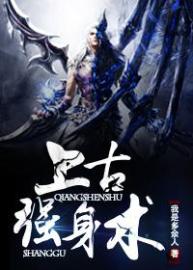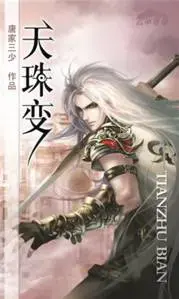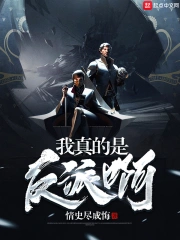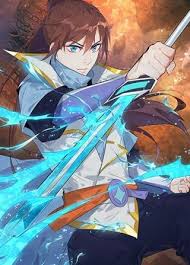The Story in 3 Sentences
A down-on-his-luck man takes a bizarre part-time gig as a fake boyfriend for a powerful, icy CEO, hoping for nothing more than easy money and a quiet life .
His carefully constructed facade of normalcy shatters as his hidden, godlike past as an immortal king resurfaces, dragging him into escalating conflicts that span from corporate boardrooms to ancient martial sects and beyond .
The narrative hurtles towards a cosmic climax where his battles determine the fate of entire worlds, forcing him to protect his ever-growing circle of lovers against universe-shaking threats .
Why It Stands Out
1. The Fake Boyfriend Trope, Weaponized
It takes the classic romantic comedy setup and injects it with pure, unadulterated xianxia adrenaline. The initial contract isn’t just a meet-cute; it’s the detonator for a chain reaction that obliterates the mundane, turning boardroom politics into a prelude for immortal warfare. The sheer absurdity of a CEO needing a mercenary king as a pretend beau is the novel’s brilliant, chaotic foundation.
2. Power Scaling That Defies Gravity
The story commits fully to its protagonist’s overwhelming strength, making his journey less about personal growth in power and more about the expanding scale of his responsibilities and the increasingly ludicrous threats that dare to challenge him. Watching him casually handle crises that would doom lesser heroes, from healing princes to single-handedly winning global wars, provides a unique, power-fantasy satisfaction .
3. A Harem Woven From World-Building
The romantic entanglements aren’t just fanservice; they are intrinsically linked to the plot’s progression and the world’s factions. Each new relationship often introduces a new sect, a new power bloc, or a new cosmic entity, making the harem structure a narrative engine that drives the exploration of its vast, layered universe rather than just a collection of conquests.
Characters That Leave a Mark
There’s Ling Yuwei – Su Qingxue’s fiercely loyal best friend and heir to the Mount Shu Sect, whose connection to ancient martial lineages constantly pulls the protagonist deeper into the hidden world of cultivation .
You’ll meet Xu Linshan, who serves as the Security Team Leader for the Logistic Department, a role that hints at her grounding presence within the protagonist’s increasingly chaotic operational sphere .
And Du Yun’er? They’re the one who, alongside others like Ling Yuwei, represents the personal stakes that compel the protagonist to reshape entire sects, like founding the Immortal Sword Sect, purely for their protection .
The Flaws Fans Debate
The pacing often feels rushed, particularly in the middle sections, where complex world-building and major battles can be glossed over in favor of moving to the next escalation.
Battle scenes, despite the protagonist’s immense power, are frequently criticized for being repetitive and lacking strategic depth, relying more on his overwhelming force than intricate choreography.
The harem structure, while integral to the plot, is a major point of contention, with some readers finding the constant addition of new love interests formulaic and detracting from deeper character development for the core cast.
Must-Experience Arcs
Ch. 1–50: The CEO’s Imitation Boyfriend – The story kicks off with Ye Fan’s mundane life colliding with Su Qingxue’s corporate empire, establishing their fake relationship and the first hints of his extraordinary, hidden abilities in a modern, urban setting .
Ch. 1000–1500: Sects and Sacred Battles – The narrative fully embraces its xuanhuan roots as Ye Fan confronts powerful martial sects like the Mount Shu and Eastern Emperor Sects, with conflicts escalating from personal duels to large-scale skirmishes that threaten regional stability .
Ch. 4000–4297: The Cosmic Reckoning – The final chapters transcend earthly concerns, pitting Ye Fan against cosmic entities and the mysteries of reincarnation, culminating in battles that determine the fate of multiple realms and solidify his legacy as an immortal king .
Killer Quotes
“Look up and look at me.”
“Your half-step Holy Spirit cultivation should have increased after three years of fighting with evil spirits”
Cultural Impact
It’s become a benchmark for the “overpowered MC in a modern setting” subgenre, often compared (and contrasted) with similar titles like “My Wife is a Beautiful CEO.”
The novel’s sheer length and commitment to its absurd premise have earned it a cult following among readers who appreciate its unapologetic, over-the-top execution.
Fan discussions are dominated by debates over the harem, the power scaling, and which of the many female characters is the most compelling, keeping its community active long after its completion.
Final Verdict
Start Here If You Want:
A wild, no-holds-barred power fantasy where the hero is already at the top and the story is about everything trying to knock him down.
A genre mashup that throws corporate drama, martial arts, and cosmic fantasy into a blender and hits puree.
A completed, massive saga where you can binge thousands of chapters of escalating, ridiculous stakes.
Study If You Love:
Exploring how webnovels use the harem trope as a structural device to expand world-building and introduce new conflicts.
Analyzing the narrative techniques used to sustain reader interest over an extremely long serial with a protagonist who faces no real power progression.
Understanding the appeal of “slice-of-life” moments within a high-octane, world-ending plot, where making breakfast follows a universe-altering battle .
Avoid If You Prefer:
Tightly paced, concise narratives with carefully choreographed, strategic combat.
Stories focused on a single, deep romantic relationship or character-driven drama over plot and power escalation.
Novels that avoid common xianxia tropes like harems, overpowered protagonists, and rapid, sometimes jarring, shifts in setting and scale.





